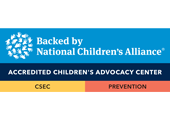A Gap in Child Protection in Massachusetts
August 15, 2024
As we move deeper into August, back to school shopping is underway while parents search for schedules, plan after-school activities, and get ready for the rush of Labor Day weekend. At the same time, school administrators are finalizing class schedules, planning in-service trainings and professional development for teachers, and classrooms are being prepared.
As a part of professional development opportunities, which mark the start of a new school year, our hope is that regional schools include training which focuses on their critical role in safety, and the prevention of abuse. Regardless, however, of trainings, important policies, and procedures, we know there is likely one critical gap which is often found unaddressed across our state: enforceable action against teachers who engage in inappropriate behavior with students aged 16 and older.
This has been a longstanding issue in Massachusetts with failed attempts at legislation dating as far back as 2009. However, in January of this year, a tragedy befell the New Bedford community with the death of Jacob Pothier, and a new light was cast upon the failures to protect this young man from a system designed to educate and protect him. For more than two years, a faculty member allegedly engaged in an inappropriate relationship with Jacob, regardless of reports to the school, which continued until the day he lost his life. While this brazen engagement in an inappropriate relationship with a student in a school setting may seem implausible to many, there is one major reason why it still takes place: there is no legal means by which an adult or person with power, control or authority can be held accountable if a child has reached the age of 16 – the legal age of consent in Massachusetts.
This fact leads to not only a gray area for school policies and procedures, but also provides a loophole for those who have intent to engage in sexual or other inappropriate behaviors with teens to escape justice, and to continue offending. Let’s break it down: when we look at the profiles of those who have a history of sexually abusing children outside of their home or families, there is a large connection between their work or community presence and direct interaction with children. This can include childcare and early education workers, pediatricians, children’s entertainers and, of course, teachers. When these offenders choose to apply for a job at a school, they will also learn all about the school’s child-protection policies to identify any weaknesses or loopholes which they can exploit to offend or harm children. And unfortunately, in Massachusetts, the largest gap in child protection is not from the school’s policies and procedures, but from Massachusetts law itself.
This glaring oversight of law is astounding to acknowledge, given the fact Massachusetts is a state which has long prided itself as being at the forefront of education in our nation.”
This glaring oversight of law is astounding to acknowledge, given the fact Massachusetts is a state which has long prided itself as being at the forefront of education in our nation. The Commonwealth falls behind other states in child protection as reported by the New Bedford Light, states such as North Carolina, Washington, and our fellow New England state of Maine have specific statutes identifying sexual relationships between students and teachers / faculty as a crime. Another critical element of these statutes is the requirement to have offenders register specifically as sex offenders. This is critical, because when individuals apply for jobs working with children, they are required to undergo a Criminal Offender Record Information (CORI) check, and a Sex Offender Registration Information check. However, due to the lack of legislation in Massachusetts, when school personnel use their positions to take advantage of students beyond the age of consent are caught, they simply resign and move on to another school district.
Locally, this is not a new issue, with an inappropriate and sexual relationship between a teacher and a student at D-Y Regional High School making the news through the Cape Cod Times and community chatrooms in 2015. This case resulted in a slightly better outcome, with the offender agreeing to surrender his teaching license. However, the conversation has remained the same, legislation stalled, and statutes remained unchanged ever since.
What we have described is an unconscionable gap of child protection upon which the state seemingly refuses to act. This coupled with the fact that there remains no legal requirement for schools to educate child sexual abuse prevention marks a blemish on our record of education and civil rights.
For now, Children’s Cove will continue to work with our 11 other partner Children’s Advocacy Centers – at no cost – to provide education and training to schools and youth-serving organizations to better recognize and respond to abuse. Additionally, we will collaborate with Safe Kids Thrive through the Massachusetts Children’s Trust to provide prevention strategies and tool kits to prevent abuse.






